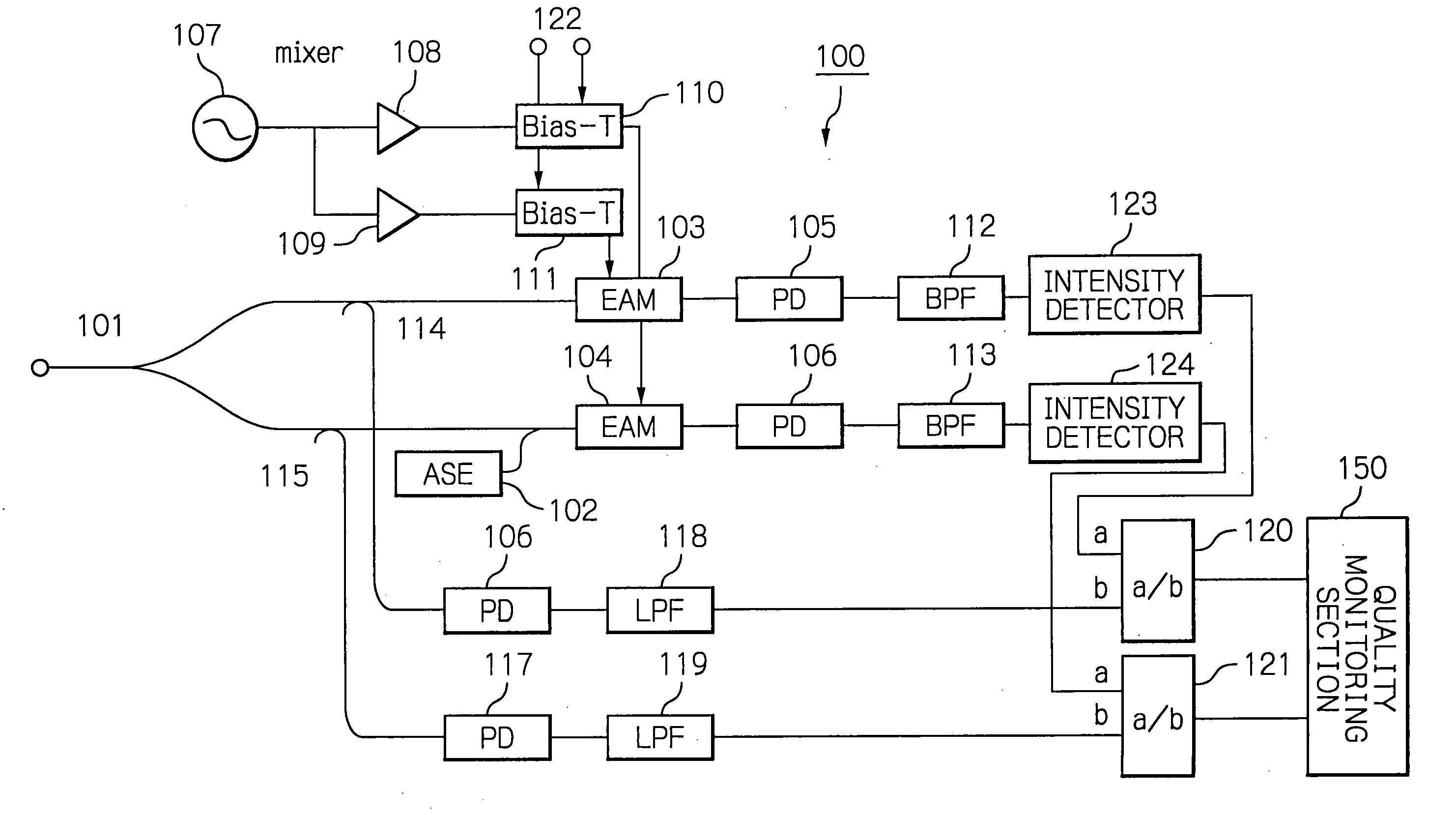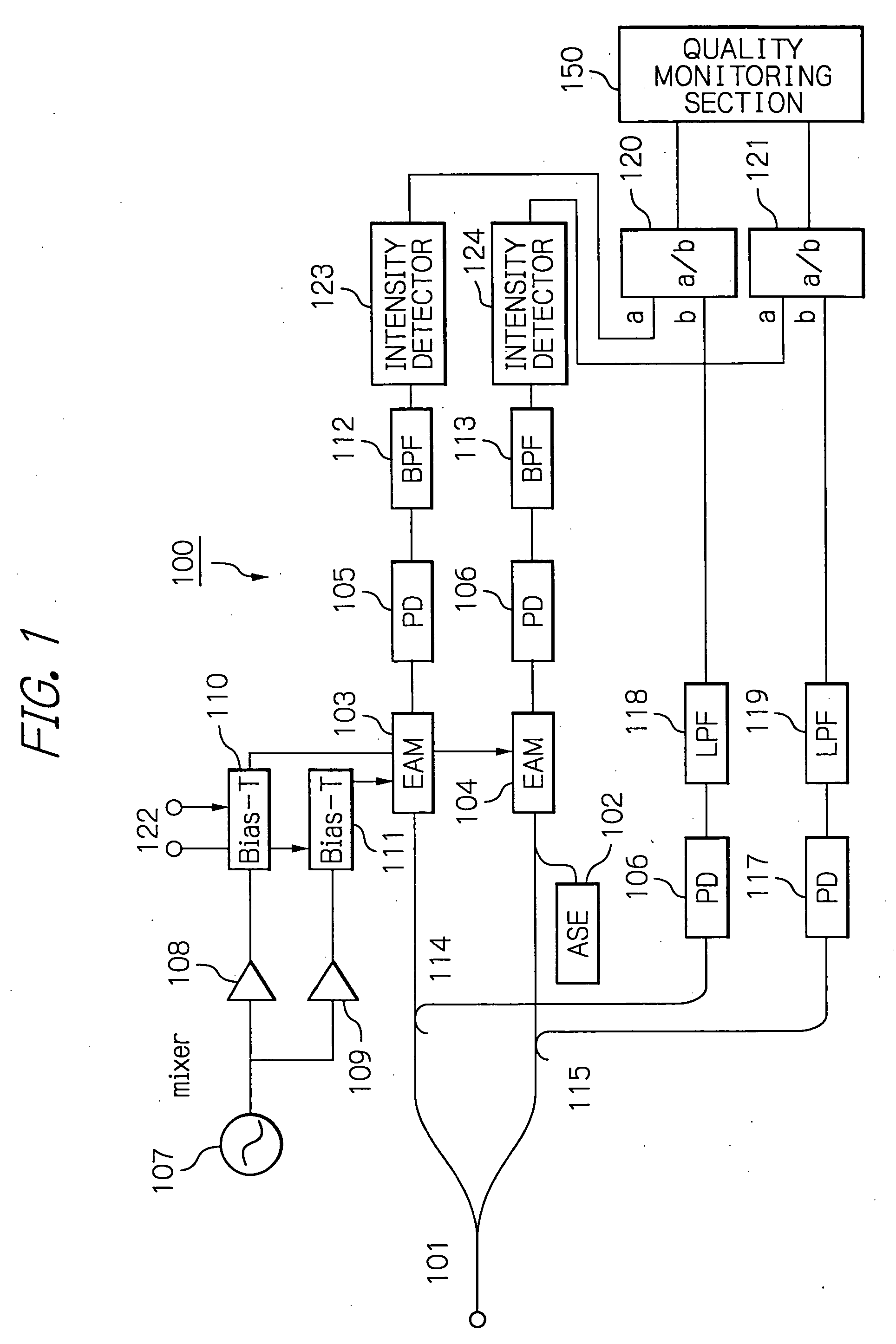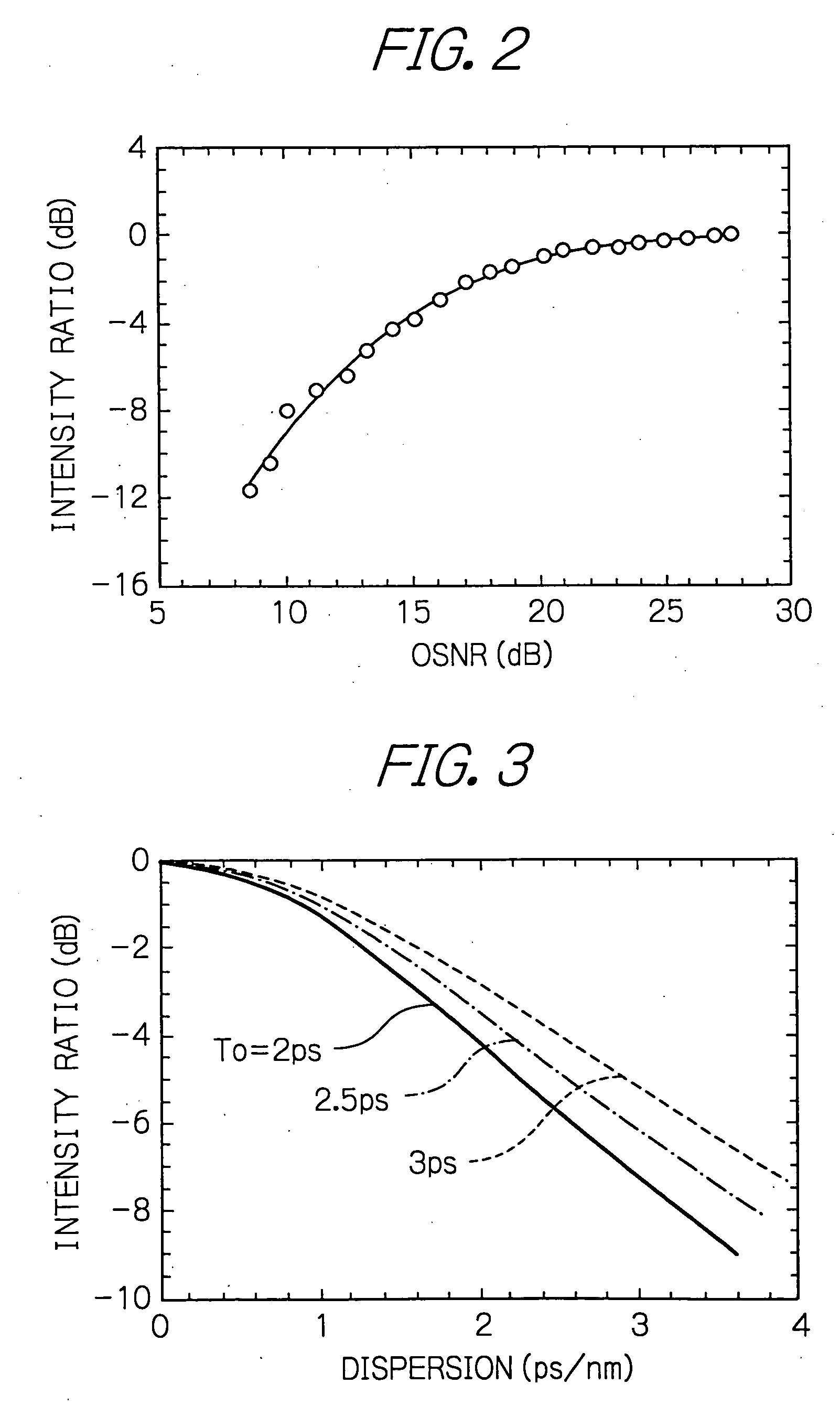Optical signal quality monitor for a high-bit rate signal
a high-bit rate optical signal and optical signal technology, applied in the field of optical signal quality monitors, can solve the problems of difficult analysis of signals, complicated and expensive devices of sampling oscilloscopes, and may not be satisfactory to such high-bit rate optical signals, and achieve the effect of confirming appropriately the quality of even signals
- Summary
- Abstract
- Description
- Claims
- Application Information
AI Technical Summary
Benefits of technology
Problems solved by technology
Method used
Image
Examples
first embodiment
[0029]With reference to the accompanying drawings, illustrative embodiments of an optical signal quality monitor according to the present invention will be described below. First, reference is made to FIG. 1, which is a schematic block diagram showing an optical signal quality monitor 100. As shown in the figure, the optical signal quality monitor 100 includes constituent elements dealing with an optical signal and ones dealing with an electrical signal as well as a quality monitoring section 150.
[0030]The elements dealing with an optical signal are an optical splitter 101, an amplified spontaneous emission (ASE) generator 102, two electro-absorption (EA) modulators 103 and 104, four photo diodes (PD) 105, 106, 116 and 117, and two optical distributors 114 and 115, which are interconnected as illustrated. In the figure, optical connections are depicted with thick lines. The elements dealing with an electrical signal are a local oscillator 107, two drivers 108 and 109, two bias-Ts 11...
second embodiment
[0067]With reference to FIG. 7, a description will be given on why the optical band-pass filter 102A is used in the optical signal quality monitor 100A in the The graph shown in FIG. 7 plots the division signal a / b (Power decrease) from the divider 121 in the second line including the optical band-pass filter 102A with respect to the optical signal-to-noise ratio (OSNR) of the input optical signal to show a characteristic curve of the signal a / b.
[0068]As seen in FIG. 7, when using the optical band-pass filter 102A to receive the signal of 3 dB and then pass the frequency of band width Δf therethrough, it is possible to provide different intensity ratios a / b for the same OSNR depending on the band width. In other words, by suitably selecting the band width Δf of the optical band-pass filter 102A in inputting the 3 dB signal, it is possible to accurately detect the OSNR that could not be accurately detected only using the division signal a / b from the divider 120 in the first line, by...
third embodiment
[0072]With reference to FIG. 9, the primary polarization mode dispersion (PMD) is generally expressed by a differential group delay (DGD) generated between a given xi (ξ) axis component and another psi (ψ) axis component perpendicular to the ξ axis in the optical signal received from an optical fiber 204. the waveform distortion due to the DGD may be detected. As shown in FIG. 9, the input light has a delay difference caused by the DGD between the given ξ axis component and the other ψ axis component perpendicular to the ξ axis.
[0073]The polarizer 201 is adopted to polarize the input optical signal and to provide the resultant polarized signal to the monitoring device 203. The polarizer 201 rotates in response to a sinusoidal wave signal at a low frequency (here 10 Hz) generated by the oscillator 202. When the polarization axis of the polarizer 201 is parallel with the ξ axis or the ψ axis, the monitoring device 203 detects the same pulse shape as the transmitted waveform.
[0074]In ...
PUM
 Login to View More
Login to View More Abstract
Description
Claims
Application Information
 Login to View More
Login to View More - R&D
- Intellectual Property
- Life Sciences
- Materials
- Tech Scout
- Unparalleled Data Quality
- Higher Quality Content
- 60% Fewer Hallucinations
Browse by: Latest US Patents, China's latest patents, Technical Efficacy Thesaurus, Application Domain, Technology Topic, Popular Technical Reports.
© 2025 PatSnap. All rights reserved.Legal|Privacy policy|Modern Slavery Act Transparency Statement|Sitemap|About US| Contact US: help@patsnap.com



